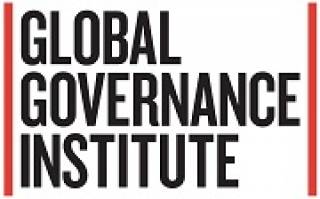Using the Corporate Toolkit to Fix Public Ills
16 October 2018, 6:00 pm–7:30 pm

A Centre for Ethics & Law & UCL Global Governance Institute event
This event is free.
Event Information
Open to
- All
Cost
- Free
Organiser
-
UCL Laws Events
Location
-
Gideon Schreier Lecture TheatreBentham HouseEndsleigh GardensLondonWC1H 0EG
About this event
Faced with a host of problems from addressing the perils of human rights, environmental harms, poor employment practices, and modern slavery, governments have been increasingly reaching for corporate law and corporate governance practices to address these ills. The Taylor review has even declared corporate governance as ‘the best way’ (even better than national regulation) at achieving public policy goals. Today it seems like the corporate toolkit has become the essential accessory for fixing public problems.
While the UK government has taken a ‘business case’ approach to relying on such mechanisms, and is proceeding cautiously, other governments have been much bolder in their efforts. The French government has introduced binding duties on corporations to address a host of duties and is contemplating changing the very purpose of corporations to better address these public policy issues; the Dutch government is in the midst of introducing a common law duty of care for corporations regarding child labour and has created business covenants for some industries; and the Swiss government is enacting legislation that would hold corporations liable for human rights and environmental harms.
Drawing from the experience of experts in these three jurisdictions, the purpose of this panel will be to learn how such legislation was successfully adopted or is being adopted, what the outcomes or the expected outcomes of such bold legislation will be in defining corporate accountability, and whether the UK can follow its European cousins to take similar approaches.
Speakers include:
- Martijn Scheltema (Pels Rijcken & Droogleever Fortuijn and Professor at Erasmus University Rotterdam)
- Florian Wettstein (Professor and Director of the Institute for Business Ethics at the University of St. Gallen)
- Alice Evans (Lecturer in the Social Science of Development at King’s College London and Research Associate at Harvard)
Chaired by Dr Barnali Choudhury (UCL Laws)
- About the Speakers
Speakers:
Martijn Scheltema is a partner at Pels Rijcken & Droogleever Fortuijn and Professor at Erasmus University Rotterdam. He specializes in the effectiveness of international private regulation in the Business and Human Rights arena. He is chair of the Business Human Rights Practice Group of his firm, chair of the independent binding dispute resolution mechanism of the Dutch Textile Convenant, co-chair of the Business Human Rights Committee of the International Bar Association, co-chair of the OECD Guidelines for Multinational Enterprises Academic network, a founding board member of Access, and has been counsel in defining human rights cases litigated at the Dutch Supreme Court.
Florian Wettstein is Professor and Director of the Institute for Business Ethics at the University of St. Gallen. He is a member of the steering committee of the Swiss Responsible Business Initiative. Florian is Vice-President of the International Society of Business, Economics, and Ethics (ISBEE) and of the Global Business and Human Rights Scholars Association (BR2R). He is Editor-in-Chief of the Business and Human Rights Journal (BHRJ), published by Cambridge University Press. He has visited at the Carroll School of Management at Boston College and at York University in Toronto, and was a fellow at Massachusetts Institute of Technology (MIT).Alice Evans is Lecturer in the Social Science of Development at King’s College London, and Research Associate at Harvard. She was previously a Lecturer at the University of Cambridge. Alice holds a Ph.D. and MSc from the London School of Economics. Her research focuses on inequality, social change and global production networks and she is currently writing her first book, The Global Politics of Decent Work. Her latest paper is entitled “Hope for Reform: Strengthening Corporate Accountability in Global Supply Chains”.
 Close
Close


